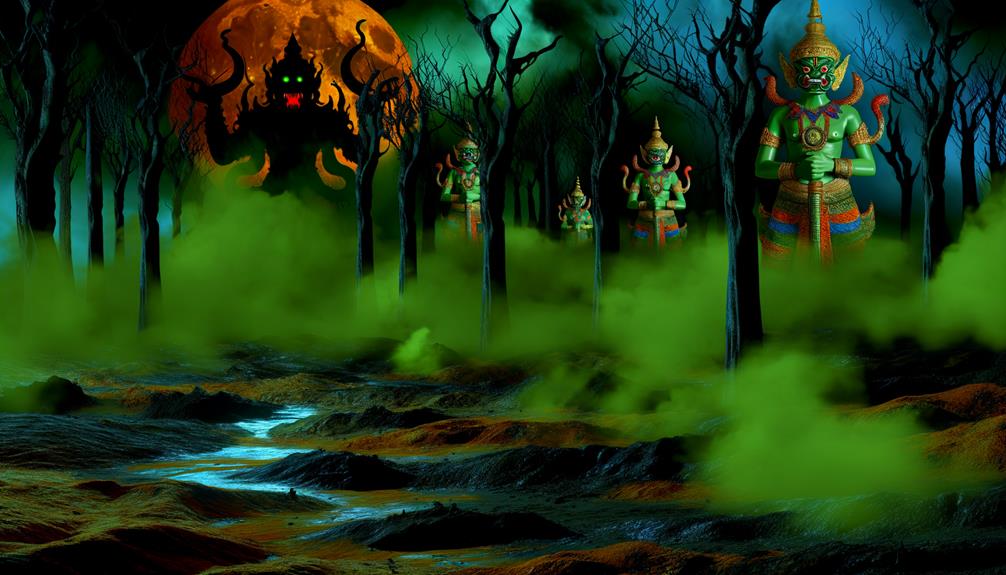Near-death experiences (NDEs) are events that occur when a person is close to death. Reports of these incidents often include vivid, life-changing details and have caused many people to question the existence of an afterlife.
This article will explore whether NDEs can be used as evidence for an afterlife, looking at both scientific research and personal accounts from those who have had such experiences.
The discussion around near-death experiences has been ongoing for centuries, but only recently has modern science begun to examine them more closely. Studies suggest that there may be biological explanations for some aspects of NDEs, while others remain unexplained.
In this article, we’ll look at what scientists believe about NDEs and how they relate to the concept of an afterlife. We’ll also hear from individuals who’ve experienced NDEs firsthand, learning how their lives were changed by the experience.
Another post that will interest you is about What Are The Long-Term Effects Of Near-Death Experiences?
What Are Near-Death Experiences?
Near-death experiences (NDEs) are profound, life-altering events that occur when someone is close to death. Typically, these experiences involve a spiritual context and altered states of consciousness in which the individual feels as if they have left their physical body, seen some kind of light or being, experienced an intense feeling of peace and joy, and had glimpses into what could be considered past lives or other realms.
NDEs have been reported by individuals from almost every culture around the world throughout history. Though often difficult for those who experience them to articulate, many who go through an NDE report it has changed their outlook on life entirely.
In fact, numerous studies suggest that these powerful events can lead to lasting changes in attitude towards fear of death as well as increased empathy and appreciation for life itself. Without a doubt, near-death experiences evoke strong emotions among both participants and observers alike; but can they provide evidence for an afterlife? To answer this question adequately requires turning to scientific research conducted on NDEs.
Scientific Research On Ndes
Near-death experiences have been captivating people for centuries and there is still much to learn about them. While some believe they are proof of an afterlife, scientific research has revealed some interesting patterns in near-death experiences that may help shed light on the phenomenon:
- NDEs often involve a sense of peace or spiritual healing
- People commonly report feeling like they are leaving their body during the experience
- Out-of-body experiences can include encounters with deceased loved ones
- Many individuals gain insight into life’s purpose and connect with feelings of unconditional love
- Some who have had NDEs come back with improved health conditions
Whether these remarkable events provide evidence of an afterlife remains unclear, but further study could bring us closer to understanding them.
For now, personal accounts of near-death experiences offer unique perspectives on what it means to confront death and transcend beyond physical limitations.
Check out my another post on What Is The Medical Consensus On Near-Death Experiences?
Personal Accounts Of Near-Death Experiences
I’m curious to hear what people have experienced in terms of healing effects from their near-death experiences,
and if they felt any intense emotions during the experience.
Healing Effects
Describing a near-death experience as a spiritual transformation isn’t uncommon.
Many people who’ve gone through it report feeling changed after the fact; some of these changes include having heightened senses, being more aware of one’s environment, and even experiencing an altered consciousness.
In terms of healing effects, individuals often talk about feeling renewed or reenergized in their outlook on life, with many claiming to be less fearful than before going into this state.
It’s possible that such experiences might help us to understand what lies beyond death — if anything at all — but only time will tell how much evidence can actually be gathered from personal accounts.
Intense Emotions
A lot of people who’ve gone through a near-death experience also recall intense emotions that they felt during the ordeal.
Some describe having an overwhelming feeling of connection to something spiritual, while others may talk about seeing visions and having thoughts related to what could be considered life after death implications.
It’s not clear if these feelings are caused by the physical shock or if it is due to some kind of metaphysical occurrence.
Whatever the case, many individuals report being deeply moved in ways that can’t easily be explained away.
All we know for sure is that this phenomenon has had profound effects on those lucky enough to survive such traumatic events.
Biological Explanations For Ndes
Peering past the veil of death is a concept considered by many to be an intimidating and mysterious experience. This phenomenon, known as near-death experiences (NDEs), has been recorded over centuries in various cultures around the world.
It’s not only fascinating but can also offer spiritual interpretations that suggest life after death may exist. Though NDEs have spiritual implications, there are some biological explanations for them as well.
Researchers believe psychological effects such as fear or shock could cause individuals to experience vivid visualizations or heightened sensory awareness during these episodes. Additionally, physiological responses like increased heart rate or blood pressure can lead to out-of-body sensations which might explain why people recall seeing themselves from above while they were clinically dead.
Without denying its religious significance, it’s important to consider all possible scientific causes before we explore the possibility of an afterlife.
Exploring The Possibility Of An Afterlife
Near-death experiences (NDEs) have long been interpreted as potential evidence of an afterlife. However, the biological explanations for NDEs complicate this interpretation. It is possible that what people perceive to be a spiritual experience is actually just a physiological one.
The debate between spirituality and religion versus scientific inquiry continues when it comes to interpreting NDEs. While some believe they are proof of nonphysical realms beyond death, others argue that the brain’s response could account for many elements commonly reported in such experiences. This makes it difficult to conclude definitively whether or not NDEs can be used as evidence for an afterlife:
- Some aspects of NDE reports may reflect cognitive processes rooted in biology rather than encounters with otherworldly beings or dimensions;
- The human capacity for imagination and creativity further complicates determining which details should be attributed to the physical world or another realm;
- Scientists studying near-death experiences cannot ignore their own biases and preconceived notions about life after death;
- Anecdotal accounts fail to provide facts that stand up to rigorous scientific scrutiny.
Although there has yet to be any conclusive evidence on the matter, understanding how our brains work under extreme duress can offer valuable insight into why we think and feel certain things—even if those feelings don’t point toward anything supernatural. As research progresses, more information will become available regarding this complex topic, allowing us both explore these possibilities while also remaining open-minded about alternative explanations.
Frequently Asked Questions
What Is The Difference Between A Near-Death Experience And A Regular Experience?
While it might seem strange to question the difference between a near-death experience and a regular one, it’s important to understand that these two experiences are not necessarily the same.
Near-death experiences have become increasingly popular over recent years due to their psychological effects and physiological responses.
During a near-death experience, individuals often report feeling an out of body sensation or seeing a bright light – sensations which can be difficult to explain outside of this context.
Physiologically, research suggests that those who have experienced these events show increased activity in certain areas of the brain as they process traumatic memories associated with them.
So while there may be some similarities between a regular experience and a near-death one, understanding the nuances between them is key for further exploring related topics such as evidence for an afterlife.
Is It Possible To Have A Near-Death Experience Without Being Close To Death?
The current H2 asks if it is possible to have a near-death experience without being close to death.
In short, yes – many people report having mystical phenomena or altered states that resemble those reported in near-death experiences (NDEs) without coming close to dying.
These events are sometimes referred to as ‘near-death-like’ experiences, and can involve feelings of peace, out-of-body sensations, and other unusual occurrences.
NDEs may also be induced through spiritual rituals such as meditation or sensory deprivation techniques.
Are Near-Death Experiences Common?
Near-death experiences are reported by people around the world, with varying levels of frequency.
While it is impossible to track exact numbers due to differing belief systems and medical causes, there have been enough reports to suggest that they occur more often than many might think.
Some experts believe that near-death experiences are caused by a combination of physiological and psychological factors, while others cite spiritual or religious reasons for their occurrence.
Regardless of how these phenomena happen, it is clear that they are not uncommon occurrences.
Are There Any Spiritual Or Religious Implications Associated With Having A Near-Death Experience?
Near-death experiences can often evoke a sense of mystery and intrigue. Many people who have had a near-death experience report feeling deeply connected with something larger than themselves – almost as if they were granted a brief glimpse into the afterlife.
This mysterious phenomenon has led to many spiritual and religious implications, leading some to seek assurance that there is an afterlife beyond their physical body. Mystical connections are believed to be formed by those who have experienced this unique event, providing comfort and security in knowing that death does not mean the end of life.
Are There Any Negative Side Effects Of Having A Near-Death Experience?
Having a near-death experience can be an incredibly traumatic event that can leave lasting psychological effects, with some people experiencing disturbing flashbacks and other forms of psychological trauma.
In severe cases, these symptoms can be long-lasting and even require medical attention or therapy in order to manage them.
It’s important for those who have had such an experience to seek help if needed and find ways to cope with their emotions.
Conclusion
Near-death experiences can be mysterious and symbolic, but they don’t necessarily provide any evidence of an afterlife.
The implications and side effects vary from person to person, so it’s important to consider all aspects before jumping to conclusions.
Overall, near-death experiences may offer us a glimpse into the unknown or even another realm, but for now we must remain open minded yet skeptical about their potential as evidence for an afterlife.
I believe that there is still much more to discover in this field of study, and it could lead us to some exciting answers!



